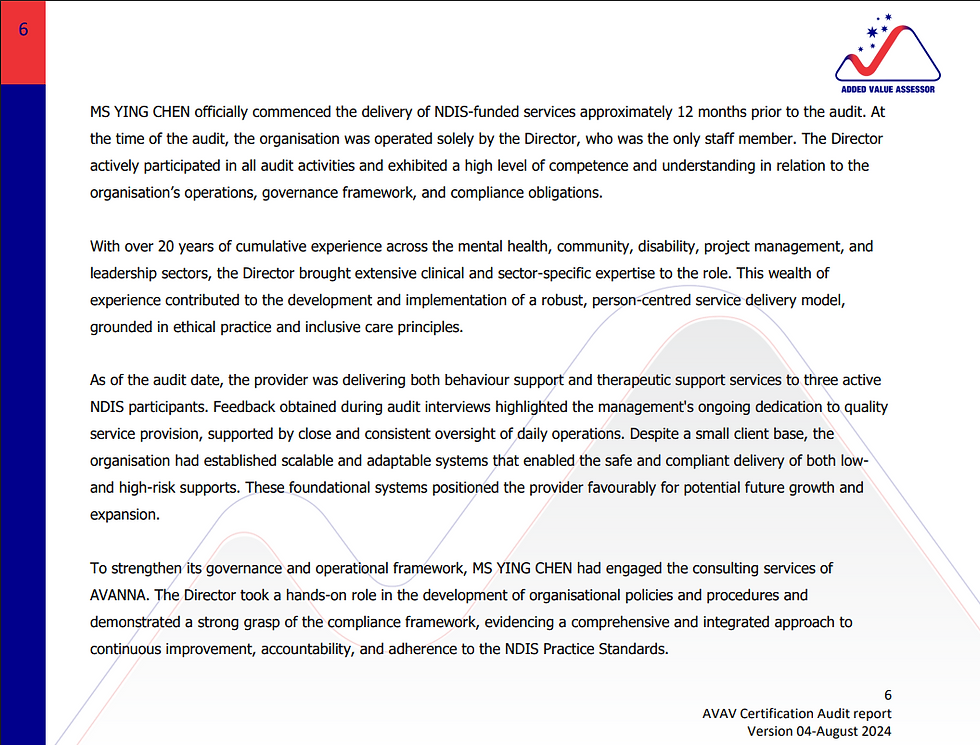Understanding the Differences: Counselling, Therapy, Mental Health, and Positive Behaviour Support
- Kelly Chen
- May 24, 2025
- 3 min read
Updated: Jun 9, 2025
If you’ve ever tried to figure out the difference between counselling, therapy, mental health, and positive behaviour support, you’re not alone. These terms pop up all the time—especially if you're navigating the NDIS—but they mean different things. And knowing what’s what can help you or someone you care about get the right kind of support.
What is Mental Health?
Mental health is something we all have. It’s about how we think, feel, and act. It affects how we handle stress, relate to others, and make choices. Good mental health doesn’t mean being happy all the time; it means having the tools to manage life’s ups and downs.
The Importance of Mental Health
Sometimes our mental health needs extra support. This is where counselling, therapy, and other services come in. Understanding mental health is essential to recognize when professional help is needed. It’s about developing emotional resilience and coping strategies.
What is Counselling?
Counselling usually helps with specific issues like grief, anxiety, depression, relationship problems, or life changes. A counsellor won’t diagnose you or offer medical advice. Instead, they listen, support, and help you explore your thoughts and feelings in a safe, non-judgmental space.
Benefits of Counselling
Counselling is great for people who need to talk it out with someone trained to help them make sense of what's going on. People often seek counselling during tough times. It allows them to express their feelings and receive guidance.
What is Therapy?
Therapy (often called psychotherapy) is similar to counselling but can go a bit deeper. Therapists might be psychologists, social workers, counsellors, or mental health professionals trained to work with more complex challenges like prolonged depression, trauma, or long-term anxiety.
How Therapy Works
Therapy often involves a longer journey. It may include treatment plans and strategies to change unhelpful patterns in your thinking or behaviour. If you or someone you love is living with a diagnosed mental health condition, therapy can be a vital part of long-term support. This process can empower individuals to lead healthier and more fulfilling lives.
What is Positive Behaviour Support?
Positive Behaviour Support (PBS) is different from counselling and therapy. It’s often (but not necessarily) used by people with disabilities or complex trauma, including those on the autism spectrum or those with behaviours of concern. PBS isn’t about “fixing” people. It’s about understanding why certain behaviours happen and finding better ways to support the person, so their needs are met respectfully and positively.
The Approach of PBS
PBS looks at the big picture. It examines what’s going on around the person, what triggers certain behaviours, and what skills or changes could make life easier. It focuses on how the people around this person can support them. This approach is practical, holistic, personalised, and focused on improving quality of life, not just reducing behaviours.
And Where Does the NDIS Fit In?
If you're an NDIS participant—or supporting someone who is—you’ve probably come across all of these terms. The NDIS (National Disability Insurance Scheme) funds different kinds of supports based on a person’s individual goals and needs.
Types of Supports Under NDIS
Here’s how you might utilize NDIS funding:
You might use NDIS funding for counselling to build emotional resilience.
You could access therapy to manage mental health challenges.
Or you might use positive behaviour support to create a plan that reduces challenging behaviours and builds independence.
Additionally, you can tap into early intervention (before the age of 7) to help a young child thrive at home, in school, and beyond.
Each support plays a distinct role. The good news is you don’t have to figure it all out alone. Support coordinators, plan managers, and providers can help guide you to the right fit.
Connecting with the Right Professionals
Reach out to professionals who can assist you in navigating your options. Whether it’s through counselling, therapy, or PBS, the right support can make a significant difference in achieving your goals.
Final Thoughts
Whether it’s talking things through in early intervention, counselling, going deeper with therapy, or building better routines with positive behaviour support, every type of help has its place. Mental health and disability is a journey. The support you choose should fit your needs—or the needs of the person you care about.
And remember: asking for help isn’t a sign of weakness. It’s a step toward strength.



Comments